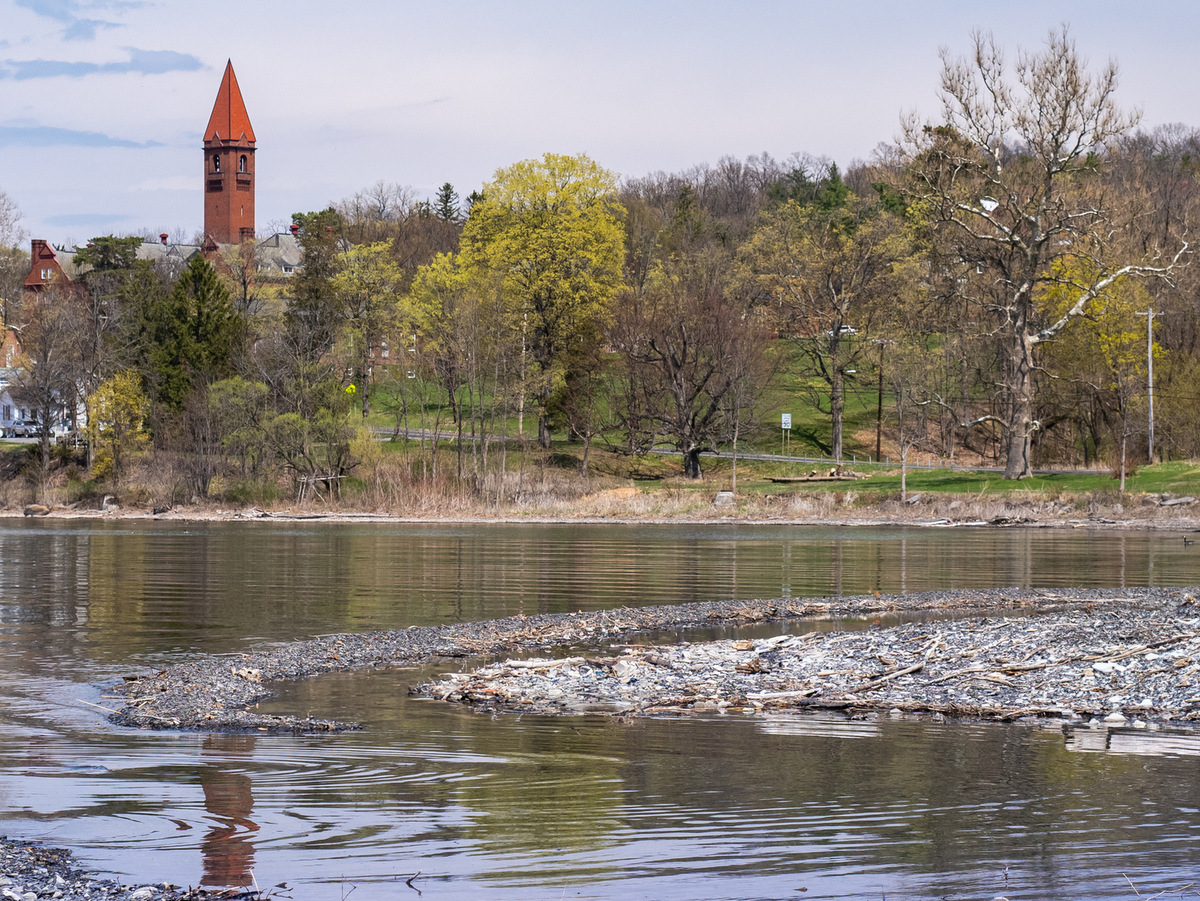The Finger Lakes Land Trust (FLLT) and the Village of Aurora announced the future creation of a new park featuring 1,100 feet of Cayuga Lake shoreline along with four acres of adjacent upland. Previously part of Wells College, this land was acquired by FLLT member Grace Bates with the intent of creating the park for public enjoyment.
Before donating the property to the Village, Grace donated a conservation easement to the FLLT, which includes provisions for public access, as well as the protection of scenic views and wildlife habitat. The property borders State Route 90, a segment of the Cayuga Lake Scenic Byway, and is located at the south end of Aurora. It features a mix of wooded and open frontage on a scenic cove that hosts concentrations of waterfowl in the winter and Bald Eagles year-round.

Photo: Chris Ray
“There is no doubt in my mind that this is the most exciting thing I have ever been a part of,” said Grace Bates. “With the help of villagers and friends, we have created a park in Aurora along the shore at the south end of the village. This park will protect wildlife habitat, preserve scenic views, and provide village and visitor access to Cayuga Lake forever.”
“We are very pleased and grateful to partner with Grace Bates and the Finger Lakes Land Trust to revitalize the Village of Aurora,” said Aurora Mayor James Orman. “This will now provide the Village with public access to the lake for families to gather safely.”
“This is a tremendous gift, and we are grateful to Grace for her commitment to the community of Aurora and the future of Cayuga Lake,” adds FLLT President Andrew Zepp. “We also applaud the leadership of the Village for accepting this gift and ensuring public access to this scenic stretch of shoreline.”
With the completion of this project, the Land Trust has worked with partners to conserve nearly three miles of shoreline on Cayuga Lake. Other protected lands nearby include the VanRiper Conservation Area and Whitlock Nature Preserve, the Cayuga Shores Wildlife Management Area, Camp Barton, and other lands secured through the use of conservation easements.
Conservation easements are voluntary legal agreements that permanently limit future land use in order to protect the land’s conservation value. Lands subject to conservation easements remain in private ownership, on local tax rolls, and available for traditional uses such as farming and hunting.

